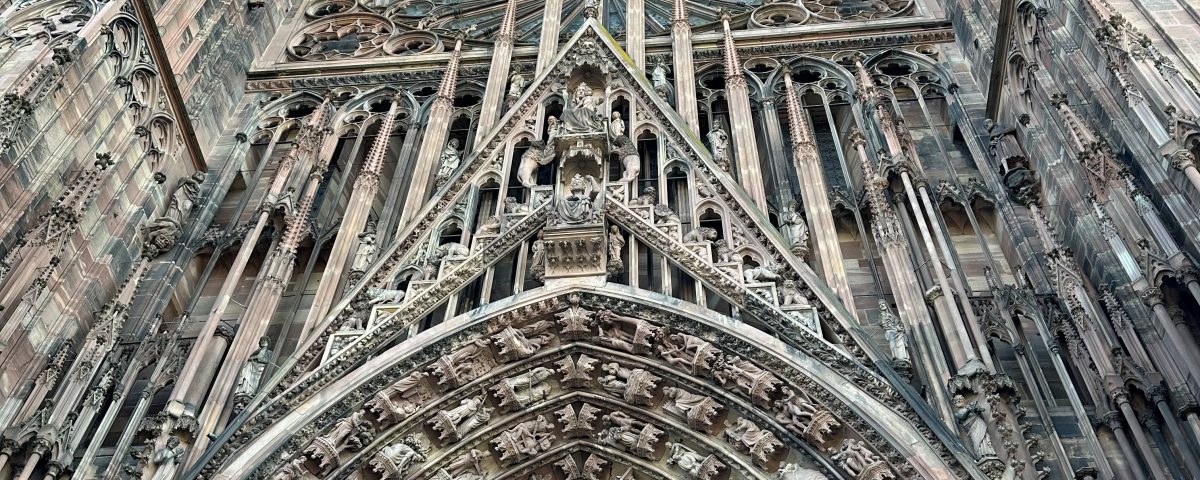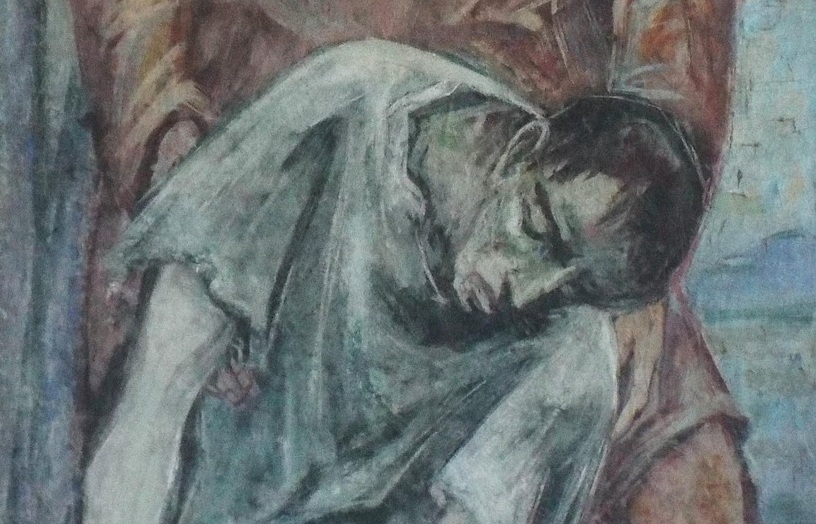The reason Nietzsche hated Christianity so much is because he thought it was all simply a lie meant to protect “the underprivileged from nihilism.” Giving people—small, insignificant people—a false and exaggerated sense of their cosmic significance instead of their true insignificance, for instance, telling them they were created by a loving God, or telling them there is such a thing as life after death, giving people false meaning and false hope: that’s what Nietzsche hated about Christianity.[1]
The problem is, he thought, Christianity propped up people who ought simply to accept their littleness, their peasant fate; and in turn he thought it kept the truly great ones down, forced them to play the game of false humility, the false game of democracy. Better, Nietzsche thought, to give way to the Übermensch, to the genuinely powerful who know how to master themselves and master others, to let the powerful exercise their power.
Anyway, I think it’s Nietzsche who’s behind all of this, our world today—behind all the immorality of technological optimists, the danger of the tech bros whose moral malformation makes their technocratic brilliance dangerous; Curtis Yarvin’s so-called “dark enlightenment” is merely a less literate Nietzscheanism; it’s what’s behind the foolishness of politicians, also what’s behind our cozy, self-centered consumerism; the clean materialists of our own world, even if religious on the surface—all of them Nietzscheans at heart. Anyway, Nietzsche finally suffered a mental breakdown and spent the final decade of his life deranged, a sad end for such a brilliant man, the prodigal son of a Lutheran minister.
Anyway, we celebrate today what Nietzsche thought was a lie. We celebrate today the ascension of Jesus Christ—no myth but rather a fact we must take on faith, that Jesus “was taken up to heaven,” to use Luke’s plain words.[2] But what difference does this fact we must take on faith make? What does it matter? It matters because it changes how you see the world, how you see the universe, yourself and the people around you; it matters because it offers us the only real alternative to the darkness of nihilism; our world is a bit darker like that today. What does it matter? It matters a great deal if we don’t want simply to give in to the cruel forces in our world today apparently more powerful than they have been in some time.
What I am talking about are these words from the Letter to the Ephesians, how God, the Father of Jesus Christ, gives to believers “a spirit of wisdom and revelation.” It is a spirit that enlightens the “eyes of your hearts,” allowing us to see that God has called us, that he offers us an “inheritance among the holy ones,” that is, the writer says, “for us who believe.”[3] For people who believe that Jesus died and rose from the dead and ascended to the Father, that there is more to reality than the reality we see with our physical eyes, that there is more to the universe than just us and maybe a few aliens from outer space. Anyway, I’m just trying to say that there is an alternative to Nietzsche and the apparently hopeless world, our world, he helped create. There is a way out of the hopelessness and anxiety of the headlines, a way out of the worry of world politics, however you fear what wrong direction you think the world or this nation is going; so many of you come to me confessing such anxiety about the world, about our country. What I’m trying to say is that there is a way out of it, an escape from such worry, a peace that’s possible. It’s just you’ve got to remember to look up. You’ve got to remember that world without end.
The derangement of Nietzsche, a deranged world, a more cold and cruel world, or the peace which passes understanding—“the resurrection of the dead and the life of the world to come”; “his kingdom will have no end”—that’s the choice to be made, between those two rival views, those two competing moralities.[4] And the world will shaped by the choice we make. Which is why I think the Gospel of Jesus Christ still matters today—for the world, for society, for you. And it’s why I think it’s beautiful and subversive and prophetic that the Church has brought us here today simply to remind us to look up.
For this world is not all there is. Nietzsche, poor guy, was just wrong. Your confident atheist friend who perhaps talks too much is just wrong. Nietzsche was brilliant, but he just didn’t get it, something was missing for him; there are people like that, you know—brilliant but just a little off. Anyway, the Church is telling you the truth; you do indeed have reason to hope. You do have reason to be joyful, as Luke tells us the disciples were joyful after seeing the Lord ascend.[5] Joy is indeed possible; it can be yours. You’ve just got to look up, your eyes raised to heaven. Amen.
[1] Rüdiger Safranski, Nietzsche: A Philosophical Biography, 296
[2] Luke 24:51
[3] Ephesians 1:17-19
[4] Philippians 4:7; The Nicene-Constantinopolitan Creed
[5] Luke 24:52
© 2025 Rev. Joshua J. Whitfield










